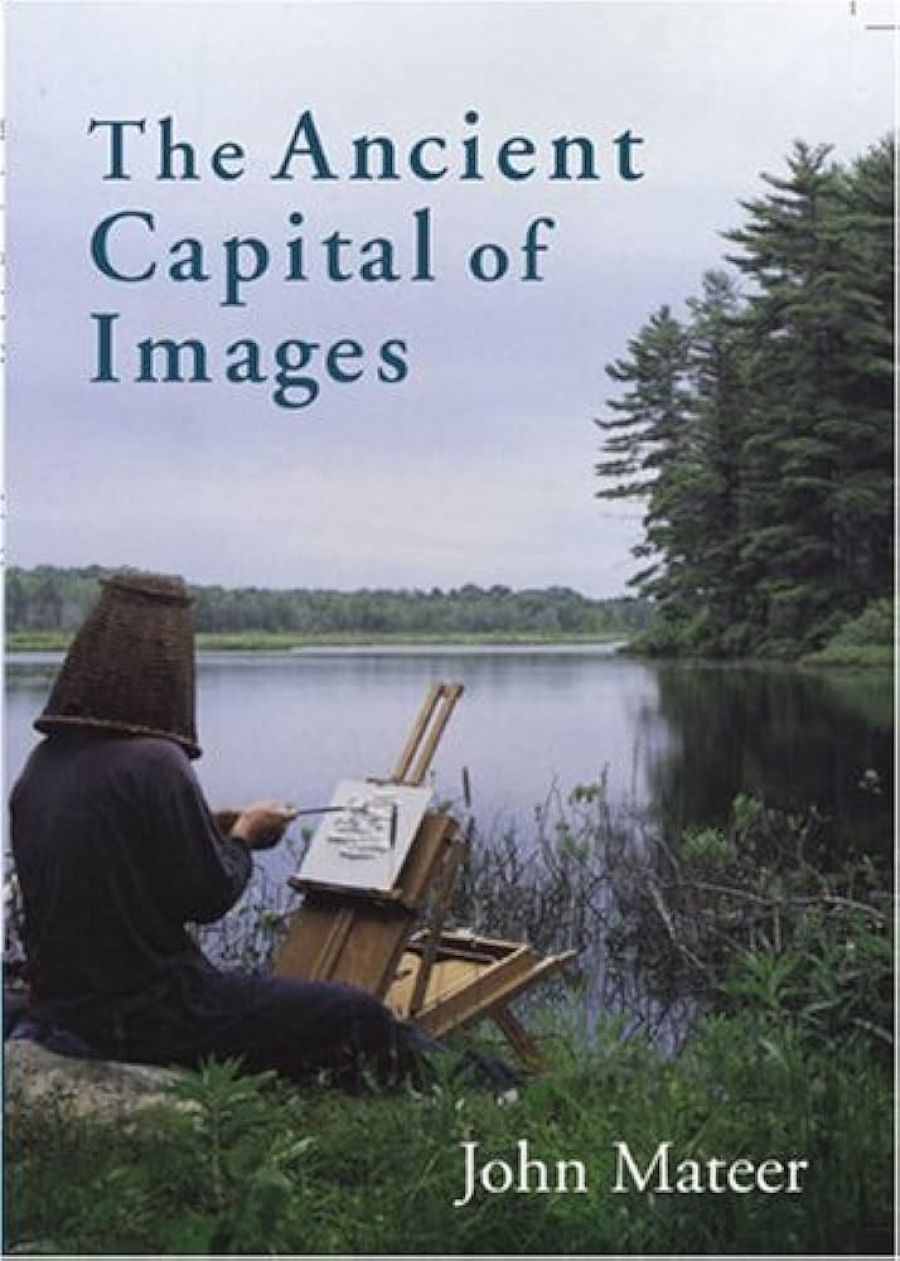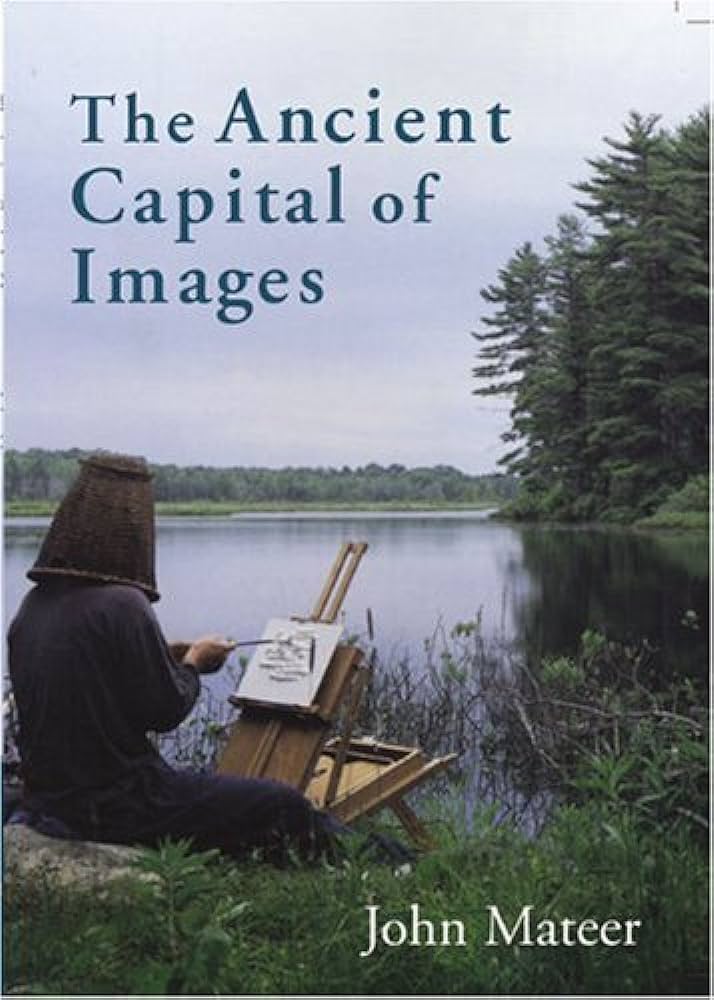
- Free Article: No
- Contents Category: Poetry
- Review Article: Yes
- Article Title: Place and prejudice
- Online Only: No
- Custom Highlight Text:
John Mateer’s fifth poetry collection confirms him as a poet of considerable assurance and originality. The Ancient Capital of Images is, in a sense, a metaphor for the poetic imagination – the entity formerly known as the Muse. The terrain ranges from South Africa to Australia to Japan. It is in the latter section that his achievement is most impressive. There is little here of the travelogue, the sense being rather of an inward journey.
- Book 1 Title: The Ancient Capital of Images
- Book 1 Biblio: FACP, $22.95 pb, 61 pp
- Book 1 Cover Small (400 x 600):

- Book 1 Cover (800 x 1200):

- Book 2 Title: The Yellow Dress
- Book 2 Biblio: Five Islands Press, $18.95 pb, 80 pp
Issues-based poems also dominate the ‘Nyoongar Country’ section – take the arresting opening to ‘How Empty the Suburbs Are’: ‘You can’t know how empty the suburbs are until your mother’s house is on fire.’ Yet shortly after, in ‘In the Ruins’, he revisits the event, turning the smoke from that fire into a conceit to introduce the notion of saying ‘Sorry’ to Australia’s indigenous population, a device that seems strained. Mateer’s sincerity is beyond question, but one longs at times for greater elaboration, or a stronger sense of ironic detachment. A number of poems disappoint with their anticlimactic endings; they trail off, almost as if Mateer had been impatient to proceed with some more absorbing project. A final reservation: I became increasingly irritated by Mateer’s over-fondness for the rhetorical question. ‘Visiting the Site of a Shell Midden’ concludes with: ‘But who are they? / Who are we? / Who are you?’ – as if the poet lacked faith in his poem’s having posed these questions already. Interestingly, in the fine poem that ends the book, Mateer resists the impulse, opting for something far more creative.
Mateer’s strengths are observation, and openness to experience. He is least convincing when simply spelling out what is wrong with the world (some lines verge on ‘motherhood’ statements), and most effective when observing it, meticulously and speculatively. His eye – ‘the nerves deep in the black box of your skull’ – is indeed a marvellous camera, and photography, actual or metaphorical, is never far from this work. Close visual and social observation play out particularly nicely in a poem such as ‘Danger Aqua Profunda’, which zeroes in on a sexy couple at a pool in Fitzroy: ‘this woman, tanned, fine-muscled, is poised, like Chaos in a bonsai / … Her partner, thick-set as a CEO, and also bronzed …’
Mateer’s fine balancing of physical observation with philosophical (or metaphysical, if you will) speculation culminates in the final and most substantial section, ‘Mu No Basho’. In this sequence, the poetic stance has become refined to a point where observation blends effortlessly with feeling, giving the work a heightened transparency and, I feel, a deeper authenticity. Its high point is a finely honed trio of poems, ‘The Deepest North’. I quote in full the opening stanza of the first poem, ‘Of the Northern Peoples’: ‘Gold teeth rock-logical in his mouth, his face / a wall of crumpled paper smoothed out into smiles. / He stops chuckling, stares at me, / his eyes animal, courageous in their simple darkness, / and I am an horizon.’
Yve Louis’s The Yellow Dress is a mixed bag, indeed. At her best, Louis is a capable poet, establishing credible landscapes – physical and emotional – with commendable economy. At her worst, she can descend into cliché and banalities, embedded at times in language that reads as pure Victoriana. The writing about sex and love – admittedly a challenge – is startlingly coy.
The collection begins promisingly with a series of accomplished poems, grounded in a sense of place, that skilfully interweave the experience of memory and ageing with sense impressions, indeed with sensuality. ‘Inheritance’ achieves its powerful effect through precision and restraint:
After eighty years, tonight
he cannot map the house
moon-stamped in its ring of pines,With the windows open ceiling to floor
he waits for the wind to gust,
billow the sheets into sails,for the bed
to lift, carry him home.
Naturalism is Louis’s strongest suit. As subsequent sections of the book depart further and further from this mode, their effects become more and more strained. This is what makes the title section less successful than either ‘The Blue Stole’ or ‘The Black Kimono’, despite their shortcomings. ‘The Green Hood’ – a prose paean to falconry – seems strikingly out of place: it’s difficult to see the point of this extended exercise in archaism. Louis is clearly a devotee of Jungian thought; however, it requires a literary imagination of a high order to construct an interface between the personal and the mythic without falling into pretentiousness. Sadly, Yve Louis does not manage to avoid this.


Comments powered by CComment